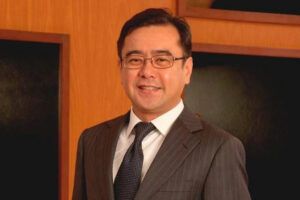By Aubrey Rose A. Inosante, Reporter
THE MAHARLIKA Investment Corp. (MIC) is expected to make its first investment this quarter, most likely in the energy sector, its top official said.
“Definitely the first quarter. I think we had a year to set up. We had a year to basically put our governance in place. We obtained our formal approval to begin hiring last end of July,” MIC President and Chief Executive Officer Rafael D. Consing, Jr. said in an interview with BusinessWorld on Jan. 2.
The MIC has yet to make any investments since President Ferdinand R. Marcos, Jr. signed the law creating the country’s first wealth fund in July 2023.
The Maharlika Investment Fund (MIF) had initially committed to make its first investments before the end of 2024.
Mr. Consing said sovereign wealth fund is “ready” and backed with funding and the needed workforce, but will not invest “without the benefit of due diligence.”
MIC earned P2.3 billion in interest income in 2024, Mr. Consing said.
Under the law, the Development Bank of the Philippines (DBP) and the Land Bank of the Philippines were mandated to contribute P25 billion and P50 billion, respectively, as the initial seed capital for the MIF. The two state lenders have remitted the funds to the Bureau of the Treasury in September 2023.
Mr. Consing said the MIC’s strategic plan will be up for board approval on Jan. 9. This after it made some changes after meeting with the Governance Commission for Government-Owned and -Controlled Corporations (GCG) before the holidays, he added.
The MIC is looking into investing in energy, food security, healthcare, and resource development, particularly mining.
“In the first quarter, that would be the energy sector. Healthcare, if it turns out okay, if our due diligence results turn out okay, first half. I would say early second quarter for the latter two,” Mr. Consing said.
Mr. Consing said he believes that investments in the energy sector, particularly transmission lines, would be “most impactful.”
“That’s why ideally, we’d like to be able to buy into the national grid, if we’re able to. Or number two, we have also separately signed MOUs (memoranda of understanding) with the likes of Mindoro and Palawan, which fall under the SPUGS [small power utilities group] category,” he said.
In 2024, the MIC signed an agreement with Occidental and Oriental Mindoro to support investments in critical energy infrastructure.
“There are about 34 SPUGS in the country. The two biggest are Mindoro and Palawan. And we believe that given the contribution of Palawan when it comes to tourism, and also the population that lives in there, and the potential contribution of Mindoro in respect to the entire electricity sector in the Philippines, we felt that these are two priority areas where we can help, in fact, build transmission lines,” he said.
However, Mr. Consing declined to comment on the MIC’s plan to invest in the National Grid Corp. of the Philippines (NGCP).
He said the National Power Corp. is currently doing an inventory of all its assets in Mindoro and MIC “will have to sit down and determine which part of those assets it would need as part of the expansion of these lines.”
“Where we are now is we’re procuring the services of the technical consultant and the team that will be putting together the whole feasibility study. Because all of these will require regulatory approval by the Energy Regulatory Commission,” he added.
Aside from transmission lines, Mr. Consing said they also aim to build more substations.
“But the problem is Mindoro is not connected to the grid. So even if you build so much capacity, it’ll go to waste because it can’t be eventually exported to the grid. So hence, eventually, NGCP will have to connect that,” he said.
Finance Secretary Ralph G. Recto, who chairs the MIC board, had pushed for the sovereign wealth fund firm to invest and obtain a seat on the NGCP’s board.
The NGCP, operator of the country’s power grid, is 60% owned by businessmen Henry T. Sy, Jr. and Robert G. Coyiuto, Jr., while the State Grid Corp. of China controls 40%.
